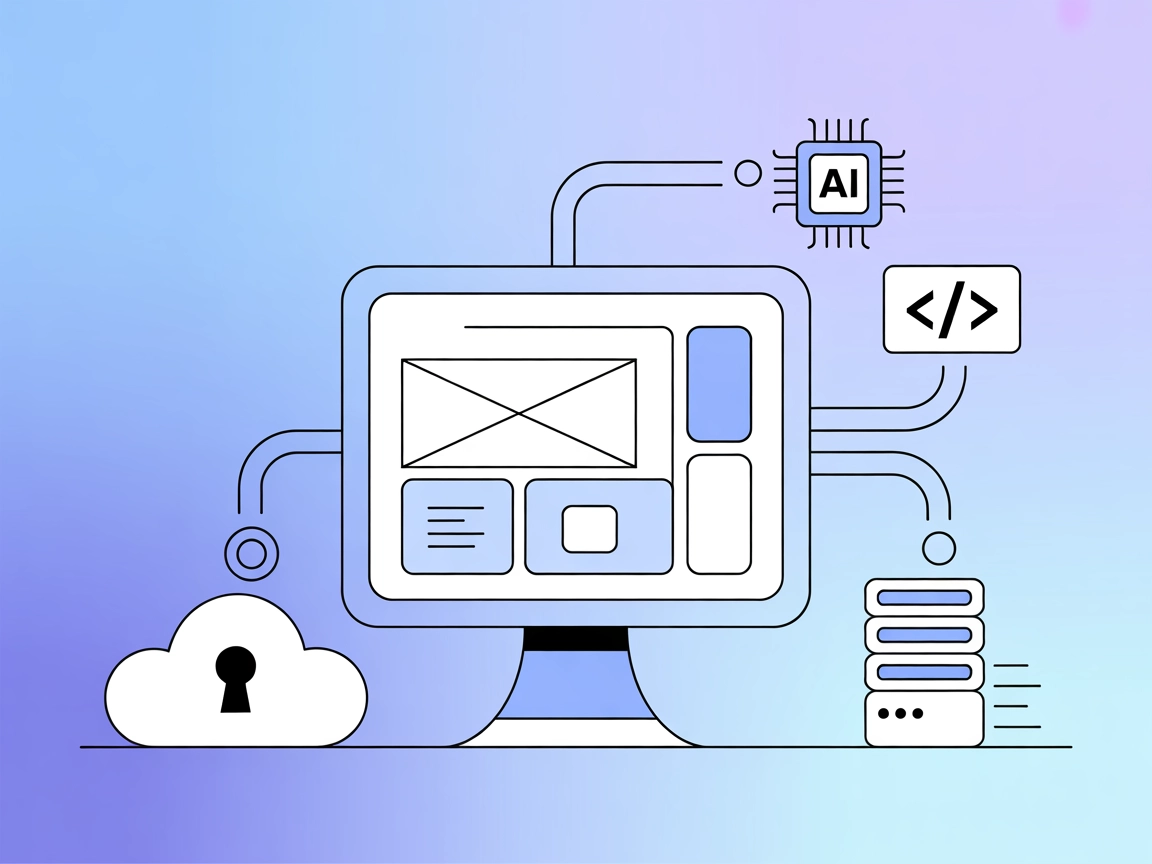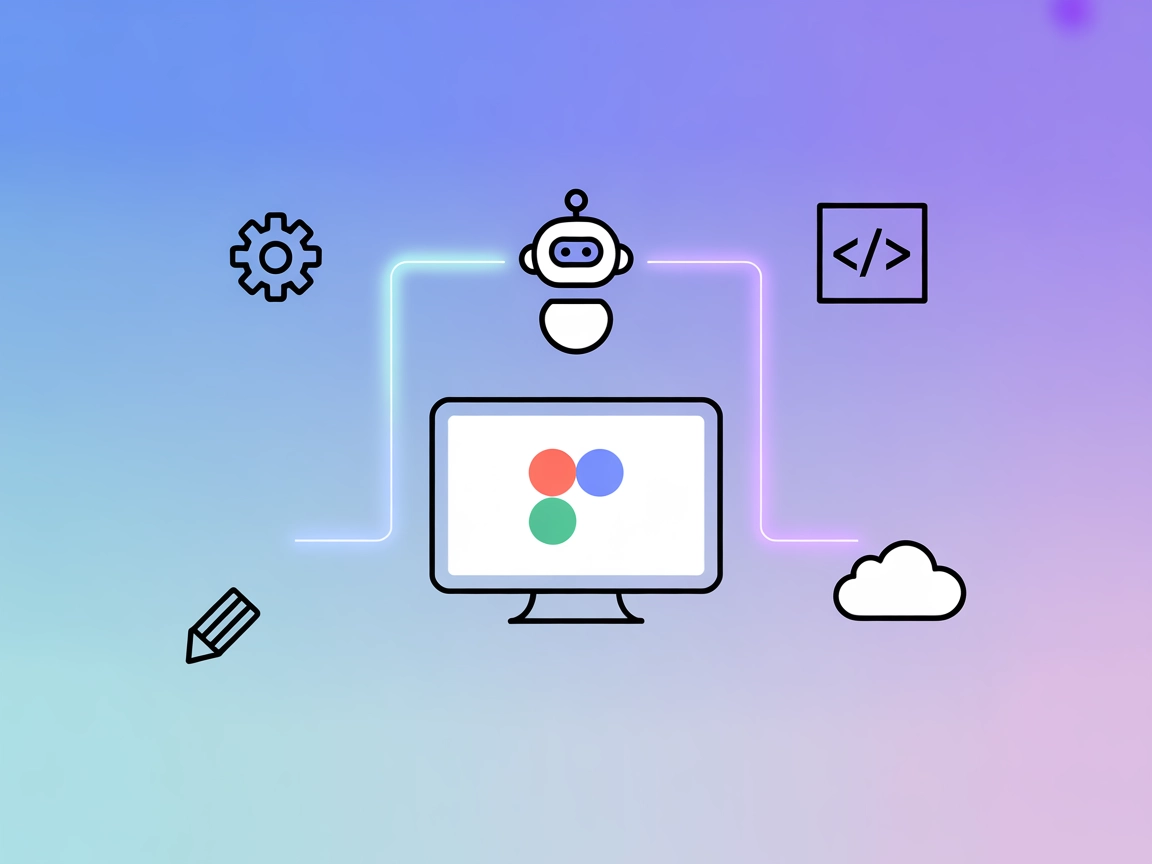
Figma-Context MCP Server
The Figma-Context MCP Server connects AI coding agents with Figma design layouts by exposing Figma data via the Model Context Protocol (MCP). It enables AI assi...

Automate, analyze, and modify Figma files programmatically with the Cursor Talk To Figma MCP Server—making design automation accessible to AI agents and developers.
FlowHunt provides an additional security layer between your internal systems and AI tools, giving you granular control over which tools are accessible from your MCP servers. MCP servers hosted in our infrastructure can be seamlessly integrated with FlowHunt's chatbot as well as popular AI platforms like ChatGPT, Claude, and various AI editors.
The Cursor Talk To Figma MCP Server provides a bridge between the Cursor AI development environment and Figma, enabling seamless interaction between AI assistants and design files. By exposing Figma’s design data and actions through the Model Context Protocol (MCP), this server allows developers and AI agents to read, analyze, and modify Figma designs programmatically. This integration streamlines workflows for designers and developers by automating repetitive design tasks, enabling bulk content replacement, propagating component overrides, and offering other automation capabilities directly from AI-powered tools. The server enhances productivity and collaboration by making Figma’s features accessible via standardized MCP endpoints.
No prompt templates are explicitly listed in the repository or documentation.
No explicit list of MCP resources is provided in the repository or documentation.
No explicit list of MCP tools is included in the repository or server files as presented.
curl -fsSL https://bun.sh/install | bash).bun setup to install dependencies.bun socket.{
"mcpServers": {
"cursor-talk-to-figma": {
"command": "bunx",
"args": ["cursor-talk-to-figma-mcp"]
}
}
}
Securing API Keys:
{
"mcpServers": {
"cursor-talk-to-figma": {
"command": "bunx",
"args": ["cursor-talk-to-figma-mcp"],
"env": {
"FIGMA_API_KEY": "${env.FIGMA_API_KEY}"
},
"inputs": {
"apiKey": "${env.FIGMA_API_KEY}"
}
}
}
}
bun setup and bun socket as above.{
"mcpServers": {
"cursor-talk-to-figma": {
"command": "bunx",
"args": ["cursor-talk-to-figma-mcp"]
}
}
}
Securing API Keys: (see example above)
bun setup.bun socket.{
"mcpServers": {
"cursor-talk-to-figma": {
"command": "bunx",
"args": ["cursor-talk-to-figma-mcp"]
}
}
}
Securing API Keys: (see example above)
bun setup and bun socket.{
"mcpServers": {
"cursor-talk-to-figma": {
"command": "bunx",
"args": ["cursor-talk-to-figma-mcp"]
}
}
}
Securing API Keys: (see example above)
Using MCP in FlowHunt
To integrate MCP servers into your FlowHunt workflow, start by adding the MCP component to your flow and connecting it to your AI agent:

Click on the MCP component to open the configuration panel. In the system MCP configuration section, insert your MCP server details using this JSON format:
{
"cursor-talk-to-figma": {
"transport": "streamable_http",
"url": "https://yourmcpserver.example/pathtothemcp/url"
}
}
Once configured, the AI agent is now able to use this MCP as a tool with access to all its functions and capabilities. Remember to change “cursor-talk-to-figma” to whatever the actual name of your MCP server is and replace the URL with your own MCP server URL.
| Section | Availability | Details/Notes |
|---|---|---|
| Overview | ✅ | Detailed in readme.md and project description |
| List of Prompts | ⛔ | No prompt templates found |
| List of Resources | ⛔ | Not explicitly listed |
| List of Tools | ⛔ | Not explicitly listed |
| Securing API Keys | ✅ | Environment variable example provided |
| Sampling Support (less important in evaluation) | ⛔ | No mention found |
The repository provides a robust integration for automating Figma via MCP, but lacks detailed documentation of prompts, tools, and resources. The setup instructions and use cases are clear and practical, but deeper MCP-specific features (roots, sampling, etc.) are not documented.
| Has a LICENSE | ✅ (MIT) |
|---|---|
| Has at least one tool | ⛔ |
| Number of Forks | 433 |
| Number of Stars | 4.4k |
Opinion and Rating:
Based on the two tables, this MCP server earns a 6/10. It is well-starred, actively used, and provides clear setup and valuable integration, but lacks explicit MCP prompt, resource, and tooling documentation, and provides no evidence of roots or sampling support.
It is an integration layer that connects the Cursor AI development environment to Figma via the Model Context Protocol (MCP), allowing AI assistants and developers to read, analyze, and modify Figma designs programmatically for workflow automation.
Key use cases include bulk text content replacement, propagating instance overrides across design systems, automating design tasks (like style or layout changes), integrating Figma with AI agents for design analysis or rapid prototyping, and bridging development and design workflows.
Always store your FIGMA_API_KEY in environment variables and reference them within your MCP server configuration under the 'env' and 'inputs' fields to avoid exposing sensitive credentials in code.
No explicit prompt templates, MCP resources, or tools are listed in the repository or server documentation. The integration focuses on enabling Figma access through MCP endpoints for automation.
Add the MCP component to your FlowHunt flow, then configure the system MCP with your server details, specifying the transport and server URL. This enables your AI agent to access Figma functions via MCP.
It is robust, actively used, and clear in setup instructions, earning a 6/10 score. However, it lacks explicit documentation for MCP prompts, resources, and advanced features like roots and sampling.
Integrate the Cursor Talk To Figma MCP Server to automate design tasks, accelerate prototyping, and bridge development and design teams using AI.

The Figma-Context MCP Server connects AI coding agents with Figma design layouts by exposing Figma data via the Model Context Protocol (MCP). It enables AI assi...

The Model Context Protocol (MCP) Server bridges AI assistants with external data sources, APIs, and services, enabling streamlined integration of complex workfl...

The ModelContextProtocol (MCP) Server acts as a bridge between AI agents and external data sources, APIs, and services, enabling FlowHunt users to build context...
Cookie Consent
We use cookies to enhance your browsing experience and analyze our traffic. See our privacy policy.